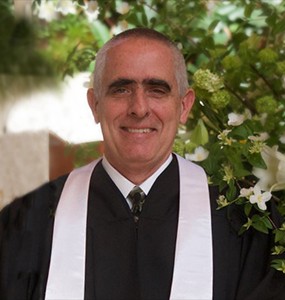As a person who tries, however poorly, to live as a Jesus follower, I find myself fearing people who have only a casual acquaintance with Christianity might assume all Christians are applauding the recent Louisiana legislation that mandates posting the Ten Commandments in every public school classroom.
The truth, of course, is that many thoughtful and serious Christians are deeply opposed to that effort by the Louisiana Legislature, not in spite of the fact that they are serious, thoughtful Christians, but because of the fact that they are serious, thoughtful Christians.

Chuck Poole
Any effort by one faith to impose its will on people of other faiths is clearly a violation of the United States Constitution. But for many thoughtful, serious Christians, it also is a violation of the spirit of the Jesus of the Gospels.
That is why so many serious and thoughtful Christians are so adamantly opposed to the agenda of Christian nationalism — a sadly misguided quest for cultural control of which the Louisiana law concerning the Ten Commandments and the Oklahoma effort to require public schools to teach Christian Scripture, are two of the most recent and troubling manifestations.
Christian nationalism is an ideological agenda that seeks cultural dominance for conservative evangelical Christianity over every other way of looking at life — an agenda which the most thoughtful kind of Christianity recognizes as contrary to the spirit of the Jesus of the four Gospels who, when tempted to take the path of popular power and control, said “No.”
Jesus chose instead the self-emptying way of vulnerable love for all people and called all who would follow him to do the same.
All of which is why I believe Christian nationalism’s quest for cultural dominance and political control is the agenda of a form of Christianity that has a Christ, but not a Jesus.
Christian nationalism has a Christ — a culture war Christ who is a composite of what 21st-century evangelicalism likes about what 20th-century fundamentalism kept about what 19th-century revivalism said about what Luther and Calvin believed about what Anselm taught about what Augustine thought about Jesus.
But that composite Christ, the Christ of culture war Christianity, is a long, long way from the Jesus of the Gospels — a Jew who, as far as we know, never mentioned starting a new world religion called Christianity and who, when asked about the commandments, mentioned not the 10 but the two: Love God with all that is in you and love all others as you wish to be loved.
The current Christian quest for cultural dominance through political advantage and privilege could not be further from the spirit of that Jesus, the real Jesus.
Seeking political privilege and cultural control for one kind of Christianity at the expense of every other faith denies the spirit of the real Jesus and, if successful, would relegate Muslims, Sikhs, Buddhists, Hindus and Jews (like Jesus) to second-class citizenship in their own land and nation; a quest for Christian control that is utterly contrary to the open embrace and welcoming spirit of Jesus.
All of which is why so much of thoughtful, mindful, gospel Christianity is so opposed to advantage-seeking, power-hungry, culture-war Christianity. In a word, it is the one word which is The Word: Jesus.
Chuck Poole retired in 2022 after 45 years of pastoral life, during which he served churches in Georgia; North Carolina; Washington, D.C.; and Jackson, Miss. He has served as a visiting preacher and teacher on the campuses of multiple universities, seminaries and divinity schools. He was the founding teacher of the Wood Street Bible Class in Jackson, which he led for 21 years. The author of nine books, numerous published articles, one gospel song and the lyrics to three hymns, Chuck has served as a “minister on the street” and as an advocate for interfaith conversation and welcome. He and his wife, Marcia, now live in Birmingham, where he serves on the staff of Together for Hope.
Related articles:
When you’re so conservative you appear to be liberal | Opinion by Chuck Poole
Christian nationalism: A Baptist evaluation and response | Analysis by Ronald Cava
That Ten Commandments law isn’t the worst thing about Louisiana’s ‘Dream Big’ act for public education | Analysis by Mara Richards Bim


